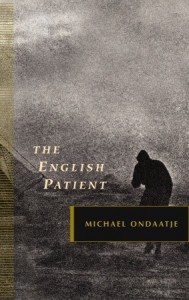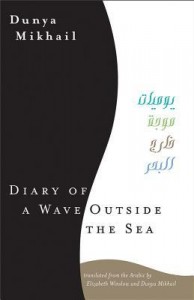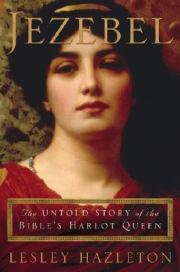 I have a confession to make. I am a bad reader. I chew up books and then cast them aside. I suck the marrow of inspiration from them and then leave them to gather dust. Sometimes I even discard them entirely–selling off boxes at a time at used bookstores. So when I read The English Patient by Michael Ondaatje, I read it wrong. And it wasn’t until years later as I was reading his In the Skin of a Lion that I realized my mistake.
I have a confession to make. I am a bad reader. I chew up books and then cast them aside. I suck the marrow of inspiration from them and then leave them to gather dust. Sometimes I even discard them entirely–selling off boxes at a time at used bookstores. So when I read The English Patient by Michael Ondaatje, I read it wrong. And it wasn’t until years later as I was reading his In the Skin of a Lion that I realized my mistake.
Is There a Wrong Way to Read a Book?
There are one hundred and fifty thousand right ways to read a book. More than that even. And there are very few wrong ways to read one. You can pick up factual errors along the way or misread a line of text. But my sin was greater. I came to The English Patient with an agenda. I had watched the film over and over and loved its golden hues and the story of Katharine and Almásy. I’d been told the book was difficult to read so I ignored it too long. When I finally did read it, I read in search of that love story. I was hungry for Ondaatje’s gorgeous language and how he’d describe a love affair.
Isn’t That What The English Patient is About?
I actually hope you’ll never ask yourself this question. I hope you’ve read this beautiful book and saw in it what I failed to… Almásy, eponymous though he may be, is not the protagonist. Hana is.
“Words, Caravaggio. They have a power.” – Michael Ondaatje
It’s been years since I read The English Patient and I might never have discovered my mistake if I hadn’t been rushing through In the Skin of a Lion this week. I was feeling fitful and hoping once again that Ondaatje could quell my inner fuss. I read a few pages a night and then fell asleep and forgot what I read. I wasn’t considering the book. I looked for Hana and Caravaggio because the jacket copy said they had first appeared in this book, but when I didn’t find them, I convinced myself I’d misread that.
And then I had lunch with a writer friend and we talked about In the Skin of a Lion and how it was her husband’s favorite book and that she enjoyed it as well. I started to think about how much I enjoy Ondaatje and why I was so impatient with him just then. I thought back to a gorgeous scene on a bridge as Nicholas saves a nun. I decided to slow down. I read the book when I had time for it instead of trying to make it bend to my sleep schedule. And like a flower in the desert, I met Hana.
Hana isn’t a main character in In the Skin of a Lion. In fact, I’d wager Caravaggio gets more pages. But it didn’t matter. All of a sudden I realized that Hana and Caravaggio came first. When Ondaatje wrote The English Patient, it wasn’t Almásy and Katharine at the front of his brain. It was Hana and Caravaggio.
How Did this Change the Book for Me?
“Do you understand the sadness of geography?” – Michael Ondaatje
With Hana at the front of my mind, I was compelled to pick up The English Patient again. You can ask my husband, it was one of those things where I picked up the book and was reading snippets of it between conversations or when he went outside. I even read a couple of passages aloud. What I realized is that the book starts with Hana. Almásy is there and there are allusions to Katharine, but that love story I’d rushed to find doesn’t actually start until page 142. A page on which I’d had the audacity to write “Now it starts.” That’s more than one third of the way through the book.
As I started reading for Hana, I saw the tenderness between her and Caravaggio and their history. I saw the connection to a life she could no longer relate to–to parents who had died and to a continent and a life far away. I could see her struggle against the pains of her very short adulthood. I realized the big role that Kip plays in her life and the smaller one that Almásy does. I watched Hana open herself up, even against all the pain in the world. I saw her become.
“She had grown older. And he loved her more now than he loved her when he had understood her better, when she was the product of her parents. What she was now was what she herself had decided to become.” – Michael Ondaatje
And of course the book is about the other characters as well and what’s most beautiful is how they interact and form in relation to one another. But I was so grateful I had this opportunity to reconsider Hana. To find the girl who became a woman and who chose, in the face of war and loss, to blossom instead of wilt.
I can’t promise that I will always read books well. I think I failed Danilo Kiš last week. But I hope I will always be lucky enough to re-encounter those beautiful books when I am ready to read them for what they have to offer.
If this review made you want to read more about Hana, pick up a copy of The English Patient or In the Skin of a Lionfrom Bookshop.org. Your purchase keeps indie booksellers in business and I receive a commission.
 On the tenth anniversary of the 2003 US invasion of Iraq, I listened on NPR as
On the tenth anniversary of the 2003 US invasion of Iraq, I listened on NPR as  I have deep respect for Lesley Hazleton. In some ways I want to be her—internationally-savvy, fantastic voice and accent, able to read the Bible in Hebrew. When I heard that she was investigating the story of the Bible’s harlot queen with Jezebel, I was excited to get a better picture of both the Bible and of the way women’s sexuality has been used against us throughout history.
I have deep respect for Lesley Hazleton. In some ways I want to be her—internationally-savvy, fantastic voice and accent, able to read the Bible in Hebrew. When I heard that she was investigating the story of the Bible’s harlot queen with Jezebel, I was excited to get a better picture of both the Bible and of the way women’s sexuality has been used against us throughout history.